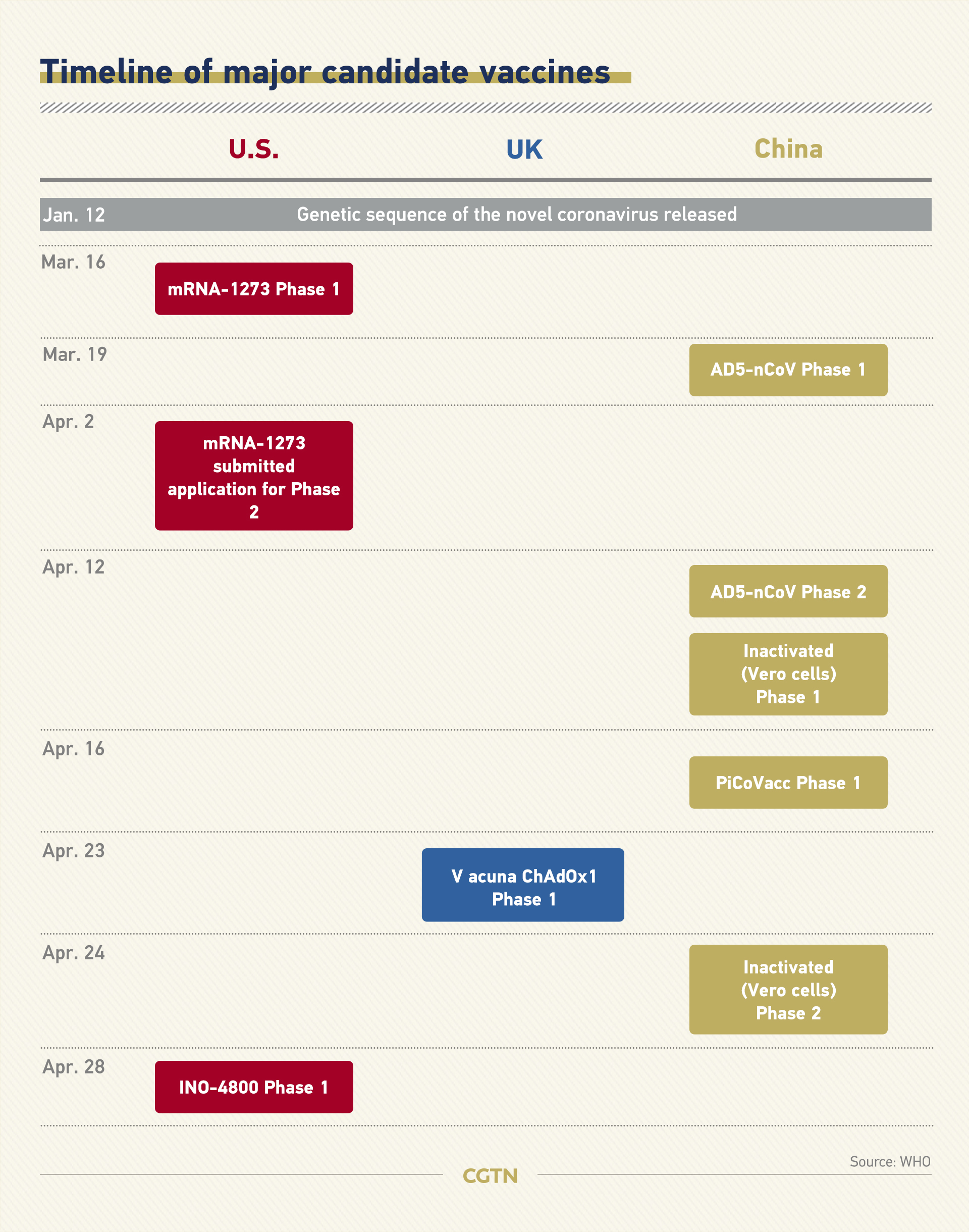Virus and science have something in common: they do not recognize borders. Since the sudden outbreak of the novel coronavirus, scientists around the globe have been working round the clock to find a cure.
From knowing nothing to gradually piecing the puzzle little by little, researchers have isolated the virus strain, figured out its genome sequence and revealed transmission routes.
According to data compiled from top medical journals, namely The Lancet, Nature, Science and New England Journal of Medicine, over 60 studies and papers have been published in the past four months, covering the virus origin, clinical analysis, transmission, treatment and prevention.

Moreover, data tacker from the Milken Institute, a California-based nonprofit think-tank, shows that 216 treatment options are presently in consideration and 131 vaccines are under development, with six of them entering the second phase of clinical trials.
About 60 programs worldwide are working on three different approaches: vaccines, repurposed drugs and antibodies. Biomedical companies from China, the U.S. and the UK are on the fast track of vaccines development.

Six vaccines have entered the second phase of clinical trials. /CGTN infographic
Six vaccines have entered the second phase of clinical trials. /CGTN infographic
Several candidate drugs have more or less shown promise against COVID-19 but no specific treatments for the deadly virus have been confirmed. The use of repurposed drugs, already approved medication for existing diseases, is one of the fastest and most cost-effective solutions.
In these troubling times, the world is witnessing one of the greatest moments in the history of science.
"It's a terrible time and simultaneously a fantastic time to see the global science community working together to conquer this very hard and challenging disease," Berkeley Lights CEO Eric Hobbs told Forbes. "We are also learning and developing the tools and technologies to ensure that we can react faster to the next threat, so that we don't get to this point again in the future."
(Graphics by CGTN's Pan Yufei, Feng Yuan and Liu Shaozhen)